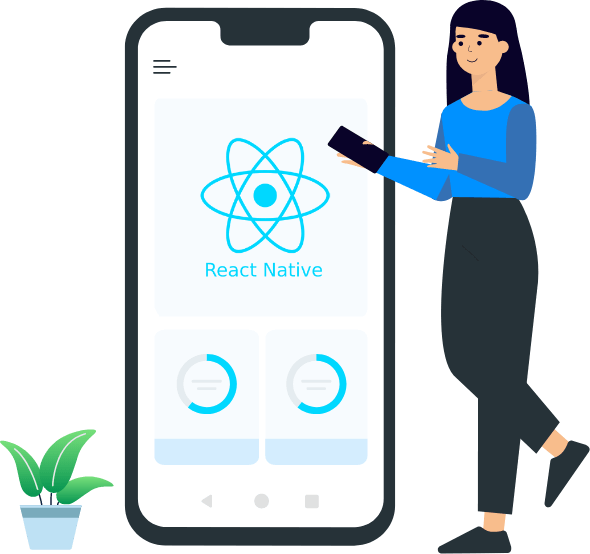React Native Development Karachi

React Native is an open-source framework developed by Facebook for building mobile applications using JavaScript and React. It allows developers to create cross-platform mobile apps that can run on both iOS and Android platforms using a single codebase.
Here are some key points about React Native development:
- Cross-platform development: React Native enables developers to write code once and deploy it on multiple platforms, saving time and effort. This is achieved by using native components that are rendered using platform-specific APIs.
- JavaScript and React: React Native uses JavaScript as its programming language, combined with the React library for building user interfaces. If you're familiar with React for web development, you'll find the concepts and syntax similar in React Native.
- Native performance: React Native bridges the gap between native performance and web development by allowing you to write native components in languages like Swift, Objective-C, or Java when necessary. This provides better performance and access to platform-specific features.
- Hot reloading and fast development: React Native offers a development server that supports hot reloading. This means you can see the changes you make in the code almost instantly, making the development process faster and more efficient.
- Vast ecosystem and community support: React Native has a thriving ecosystem with numerous libraries, tools, and community support available. You can find pre-built UI components, state management solutions, navigation libraries, and much more, which can significantly speed up development.
- Third-party integration: React Native allows you to integrate with third-party libraries and plugins written in native languages. This gives you access to a wide range of functionality, such as accessing device sensors, using native maps, or integrating with payment gateways.
- Debugging tools: React Native provides debugging tools like React Native Debugger and Reactotron, which can help you inspect the application's state, debug network requests, and analyze performance.
- Upgrading and maintaining: As with any technology, it's essential to keep your React Native project up to date with the latest versions of React Native and its dependencies. Regular updates ensure access to new features, bug fixes, and security patches.
It's worth noting that while React Native provides a great solution for many mobile app development scenarios, there may be cases where you need platform-specific features or maximum performance. In such cases, you might consider using native development (Swift for iOS or Kotlin/Java for Android) or other frameworks like Flutter

